Find Balance, Embrace Life
ADHD Coaching & Holistic Support |Empowering Neurodiverse Minds
Compassionate coaching for adults, students, and families ready to reclaim their time, confidence, and calm with holistic support that actually works.
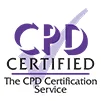

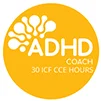
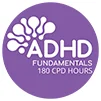
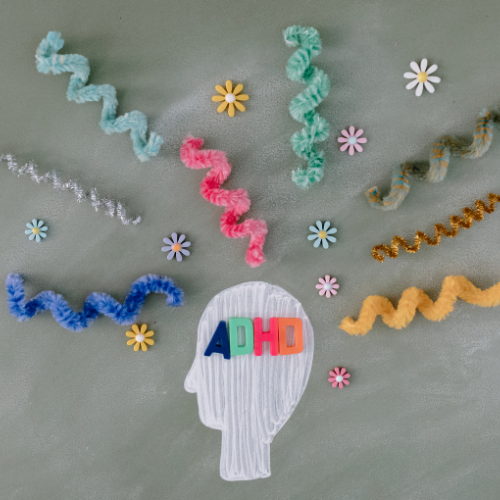

We See You. And We Get It.
You’re Not Broken. You’re Wired Differently.
Struggling to stay focused? Overwhelmed by daily life? You’ve probably been told to “try harder” or “just get organized.” But ADHD isn’t a motivation problem it’s a brain wiring difference.
We provide coaching that respects how your mind works — helping you tap into strengths, set realistic routines, and find sustainable calm.
- Free Consultation
- 1-to-1 Coaching
- Family Support
- Wellness Approach
It’s not about trying harder, Its’s about trying what works for you
Our Best Selling Products!
Who We Help
Tailored Support, For Every Stage of Life
Whether you’re navigating adult responsibilities, academic demands, or parenting challenges, ADHD can impact how you show up in every area of life. Our coaching is designed to meet you where you are.
offering practical tools, compassionate support, and proven strategies that align with the way your brain works.
01
Adults with ADHD
Build routines, manage emotions, and finally follow through. We help adults reduce overwhelm, beat procrastination, and create structure that sticks at home and work.
.
02
Student & Professional
Struggling with uni, deadlines, or work stress? We support focus, time management, and confidence helping you thrive without burnout.
03
Parents & Families
Parenting a neurodivergent child is tough. We help you understand ADHD, ease conflict, and create calm, connected routines at home.
Why It’s Not Just You
You’re Not Failing. The System Just Wasn’t Built for Your Brain.
Many adults with ADHD feel shame, guilt, or burnout from years of trying to fit a mould. We coach you differently, with tools built for your brain, your pace, and your life. No judgement. Just practical steps forward.
- Flexible routines
- Emotional regulation
- Tools tailored
- Real progress
It’s not a lack of willpower, your brain just needs a different strategy, and that’s exactly what we provide.

What We Offer
Our Coaching Services
1-on-1 ADHD Coaching
Weekly sessions that adapt to you with tools, empathy, and accountability.
Family & Parent Support
Wellness Products & Holistic Add-ons
why choose us ?
Restoring Hope, One Day at a Time
At Kemis Neurodiverse Kindm, we bring lived experience, professional training, and a holistic mindset to every session. You’re not getting a one size fits all plan — you’re getting support that honours your brain, your pace, and your journey.
- Lived Experience & Professional Insight
- Holistic Approach to Well-Being
- Judgement Free, Neurodiverse-Affirming Space

100%
Satisfaction
257+
Happy Patient
10+
Expert therapist
client feedbacks
It begins with one brave step.
Real experiences. Real progress. See how our clients overcame challenges and discovered their strength.
"I had 3 life couching sessions with kemi, accessed through 'access to work' was a little sceptical at first as I'm introverted and generally find these things insufferable but they were informative and insightful. Overall positive and uplifting experience and my picky kids loved the immunity smoothies. Would 100% recommend "
"I'm really happy with this service, my coach was professional, and kind she guided me on how to apply healthy tools to my daily life that helped me gain confidence in managing my thoughts, feelings and routine effectively, while helping me find my self worth...charlotte has positively impacted my life and is great to talk to ☺️"
“I never realised how much ADHD was holding me back until coaching helped me see things differently. The sessions are practical, supportive, and tailored — I feel more focused, confident, and in control.”“I never realised how much ADHD was holding me back until coaching helped me see things differently. The sessions are practical, supportive, and tailored — I feel more focused, confident, and in control.”

Gut Health
Focus Starts in the Gut. Calm Starts with Care.

These aren’t just juices they’re a form of self-care. Whether you’re starting your morning, recharging after a long day, or soothing your system, each blend is crafted to help you feel better from the inside out.
For many of us, complicated health routines just don’t stick. That’s why our juices are designed to be simple, enjoyable, and effective — no stress, no prep, just grab and go support that fits into your day.
- Cold-pressed juices for gut-brain balance
- Sea moss blends to support mood and immunity
- Calming detox baths to reduce stress and overstimulation
- Free from additives, fillers, or harsh chemicals
FAQs
Got Questions?
Why can't I finish anything I start? Could it be ADHD?
If you constantly start projects with enthusiasm but can’t see them through, struggle to complete simple tasks, or have dozens of half-finished things lying around, this could be a sign of ADHD—specifically, difficulties with task completion and follow-through.
Adults with ADHD often experience what’s called “interest-based motivation”—your brain is driven by novelty and stimulation rather than importance or deadlines. When a task loses its shine, your brain struggles to generate the dopamine needed to keep going, even if you know it’s important.
Other signs this might be ADHD include:
- Starting multiple tasks and switching between them constantly
- Feeling mentally exhausted from “simple” tasks others find easy
- Beating yourself up for being “lazy” or “undisciplined” when you’re actually working harder than most people just to function
- Struggling with boring but necessary tasks (admin, emails, chores)
This isn’t laziness or lack of discipline—it’s how your ADHD brain is wired. If this sounds familiar, it’s worth exploring an ADHD assessment. In the meantime, strategies like body doubling, breaking tasks into tiny steps, and working with your energy levels (not against them) can help.
How long is the NHS ADHD assessment waiting list in 2025?
NHS ADHD assessment waiting times in the UK currently range from several months to over four years, depending on your location. Some areas report waits of 3-5 years for adults, and at least 131,000 people are estimated to be waiting for an ADHD assessment across England.
What you can do while waiting:
- Ask your GP about the Right to Choose scheme (England only), which lets you choose alternative NHS providers with shorter waiting lists—potentially reducing your wait to 3-12 months
- Consider a private assessment (£500-£1,500) if financially possible. Some private providers can later transfer your care back to the NHS
- Join ADHD support groups and start learning strategies now—you don’t need a diagnosis to benefit from ADHD coaching or coping techniques
- Apply for Access to Work (UK government grant) even without a diagnosis to get workplace coaching and support funded
The wait is frustrating, but support is available now—don’t put your life on hold.
Is it ADHD, anxiety, or am I just lazy?
If you’ve spent years thinking “Why can’t I just do this?” or “Everyone else copes, what’s wrong with me?”—you’re not alone. Many adults with undiagnosed ADHD are told (or tell themselves) they’re lazy, anxious, or “not trying hard enough.”
Here’s the difference:
Laziness = not wanting to do something and choosing not to.
Anxiety = wanting to do something but feeling paralysed by worry about the outcome or judgment.
ADHD = desperately wanting to do something, knowing you should do it, but your brain will not let you start or focus—no matter how hard you try.
ADHD often co-exists with anxiety and depression, making it even more confusing. Many people with ADHD develop anxiety because of years of struggling, missing deadlines, and feeling “behind.” The shame cycle feeds the anxiety, which makes ADHD symptoms worse.
Signs it might be ADHD (not laziness or anxiety alone):
- You’ve struggled with focus, organisation, and time management since childhood—not just recently
- You work incredibly hard but still underperform or feel exhausted
- You experience emotional overwhelm, fast-building emotions, or rejection sensitivity
- Stimulants (like caffeine) calm you down instead of hyping you up
An ADHD assessment can provide clarity—and finally, the right support.
Do I need an official ADHD diagnosis to get help?
If you forget conversations minutes after having them, walk into rooms and forget why, lose your keys daily, or miss important appointments despite caring deeply—this could be ADHD-related working memory difficulties.
ADHD affects executive functions, including working memory—your brain’s ability to hold and use information temporarily. It’s not that you don’t care or aren’t trying—your brain’s “mental sticky note” system simply doesn’t work the same way as neurotypical brains.
ADHD working memory struggles look like:
- Forgetting what someone just said mid-conversation
- Losing track of tasks when interrupted (and never remembering what you were doing)
- Struggling to follow multi-step instructions without writing them down
- Forgetting important deadlines, appointments, or birthdays despite caring
This isn’t “early-onset dementia” or “getting old”—it’s ADHD. The difference? ADHD memory issues have been lifelong, not recent onset.
What helps: External systems (phone reminders, visual cues, body doubling), ADHD coaching to build personalised strategies, and self-compassion—your brain isn’t broken, it just works differently.
Why do I forget things constantly even when they're important?
No—you do not need a formal ADHD diagnosis to access ADHD coaching, support groups, or strategies. Many people benefit from ADHD coaching while waiting for NHS assessment (which can take years) or if they choose not to pursue formal diagnosis.
ADHD coaching is for anyone who:
- Resonates with ADHD traits (difficulty focusing, time blindness, emotional dysregulation, impulsivity)
- Struggles with neurotypical productivity advice that “just doesn’t work” for them
- Wants practical, brain-friendly strategies to manage work, life, and relationships
However, if you want medication or workplace protections under the Equality Act, you’ll need a formal diagnosis. Speak with your GP about NHS referral or consider private assessment (£500-£1,500).
Bottom line: Don’t wait years for a diagnosis to start getting support. Coaching, strategies, and community can help you thrive now—whether you’re diagnosed, self-identified, or exploring.
I think I have ADHD but I did well at school—can I still have it?
Absolutely yes. One of the biggest ADHD myths is that you can’t have ADHD if you did well academically. In reality, many people with ADHD—especially women and high-achievers—weren’t diagnosed in childhood because they:
- Had high intelligence that masked their struggles
- Hyperfocused on subjects that interested them
- Were “daydreamers” rather than hyperactive, so flew under the radar
- Worked twice as hard as peers to compensate, leading to burnout later
ADHD in women is often under-recognised because they’re more likely to have inattentive symptoms (daydreaming, internal restlessness) rather than obvious hyperactivity, which is more noticeable in boys.
You can excel academically and still have ADHD if:
- Structure was provided for you (school timetables, parental support)
- You struggled once that structure disappeared (university, adult life, working from home)
- You achieved good grades but at a huge emotional or mental cost (burnout, anxiety, sleepless nights)
- You were labelled “bright but disorganised” or “not reaching potential”
Many adults are diagnosed in their 30s, 40s, or beyond. It’s never too late to get clarity and support.
What's the difference between ADHD coaching and therapy? Which do I need?
ADHD coaching and therapy are both valuable but serve different purposes. Therapy focuses on emotional processing, past experiences, and mental health conditions like anxiety or depression. ADHD coaching is action-oriented, practical, and future-focused—helping you build systems, strategies, and skills to manage ADHD in daily life.
Choose ADHD coaching if you want:
- Practical strategies for focus, time management, organisation, and task completion
- Accountability and structure without judgment
- Help creating routines, systems, and habits that work with your ADHD brain
- Support with work performance, career goals, or life transitions
Choose therapy if you need:
- Help with trauma, depression, anxiety, or other mental health conditions
- Exploration of past experiences and emotional healing
- Clinical treatment for co-occurring conditions
Many people benefit from both. Coaching addresses the “what do I do now?” while therapy addresses the “why do I feel this way?” They’re complementary, not competing.
In the UK, ADHD coaching is unregulated—look for coaches with ICF accreditation or ADHD-specific training. Therapy requires professional qualifications (CBT therapist, counsellor, psychologist).
Bottom line: If you’re emotionally stable but struggling with daily life, start with coaching. If mental health is a barrier, start with therapy (or do both).
Can ADHD coaching help if I've been diagnosed late (as an adult)?
Yes—and it’s particularly powerful for late-diagnosed adults. Being diagnosed with ADHD in your 30s, 40s, 50s, or beyond is increasingly common, especially for women who were missed in childhood.
Late diagnosis can be both relieving and overwhelming. On one hand, you finally have an explanation for a lifetime of struggles. On the other, you’re left thinking, “What now? How do I unlearn decades of shame and build new systems?”
ADHD coaching for late-diagnosed adults helps you:
- Reframe your past: Those “failures” weren’t personal flaws—they were undiagnosed ADHD
- Build ADHD-friendly systems from scratch: Strategies that work with your brain, not neurotypical rules
- Unlearn shame and self-blame: Decades of “you’re just not trying hard enough” takes time to undo
- Navigate disclosure: Whether and how to tell employers, family, or friends
- Identify strengths: ADHD comes with gifts too—creativity, hyperfocus, problem-solving
It’s never too late to learn how your brain works and stop fighting against it. Many clients say, “I wish I’d known sooner”—but the next best time is now.
I'm on the NHS ADHD waiting list—what can I do now while I wait?
With NHS ADHD waiting lists stretching to 3-5 years in some areas, waiting passively isn’t an option. Here’s what you can do now to start improving your life:
1. Start ADHD coaching: You don’t need a diagnosis to access coaching. Work with an ADHD coach to build strategies for focus, organisation, and emotional regulation.
2. Join ADHD support groups: Connect with others who understand your struggles. ADHD UK and ADHD Aware offer free meetups and resources.
3. Learn about ADHD: Read books like Driven to Distraction, ADHD 2.0, or Women with Attention Deficit Disorder. Understanding how your brain works is half the battle.
4. Apply for Access to Work (UK gov scheme): Even without a diagnosis, you can get funding for workplace coaching, software, and adjustments.
5. Experiment with strategies: Try body doubling, visual reminders, time-blocking, or ADHD-friendly productivity tools (Goblin Tools, Focus@Will).
6. Consider private assessment: If possible, a private ADHD assessment (£500-£1,500) can fast-track diagnosis and treatment.
Don’t wait years to start living better. Support is available now.
Why is everything so overwhelming? Even simple tasks feel impossible.
If “simple” tasks like replying to an email, doing laundry, or making a phone call feel like climbing Everest—and you beat yourself up for it—you’re experiencing ADHD-related executive dysfunction and overwhelm.
ADHD affects executive functions—the brain’s management system for planning, prioritising, initiating tasks, and regulating emotions. When your executive function is impaired, everything requires more mental energy, even tasks that seem “easy” to others.
Why everything feels impossible with ADHD:
- Task initiation struggles: Your brain can’t generate the motivation to start, even when you desperately want to
- Decision fatigue: Too many choices shut you down (what to wear, what to eat, where to start)
- Emotional dysregulation: Small frustrations trigger disproportionate emotional responses
- Mental exhaustion: You’re working 10x harder than others just to function at baseline
This isn’t weakness or laziness—it’s a neurodevelopmental condition. The answer isn’t “just try harder”—it’s understanding how your brain works and building systems that reduce cognitive load (routines, external reminders, breaking tasks into micro-steps, asking for help).
ADHD coaching can help you identify what’s draining you most and create personalised strategies that actually work.
Why was my ADHD missed? I'm a woman who wasn't diagnosed until now.
ADHD in women is significantly under-diagnosed because girls and women are more likely to have inattentive symptoms (daydreaming, internal restlessness, disorganisation) rather than the hyperactive, disruptive behaviours that get boys noticed and referred for assessment.
Why women’s ADHD gets missed:
“Good girl” masking: Women learn to hide struggles to fit in and meet social expectations. They work twice as hard to appear “normal,” leading to burnout and exhaustion that’s mistaken for anxiety or depression.
Misdiagnosis: Women with ADHD are more likely to be diagnosed with anxiety, depression, or borderline personality disorder first, because their ADHD symptoms are internalised.
Hormonal impacts: ADHD symptoms worsen during periods, pregnancy, and menopause due to fluctuating oestrogen levels, but doctors often miss the ADHD connection.
Diagnostic bias: ADHD research historically focused on hyperactive boys, so diagnostic criteria favour male-presenting symptoms. Women with identical symptom profiles are less likely to be referred for assessment than men.
Common female ADHD traits missed in childhood:
- Chatty, emotional, or “overly sensitive” rather than physically hyperactive
- Chronic overwhelm, people-pleasing, perfectionism to compensate
- Emotional outbursts at home (but “well-behaved” at school)
- Body-focused behaviours: skin-picking, nail-biting, hair-pulling, leg-bouncing
If this resonates, you’re not “too late”—many women are diagnosed in their 30s, 40s, 50s, or beyond. Understanding your ADHD now means you can finally stop blaming yourself and start building systems that actually work.
Stay Updated With Our Latest
Blogs
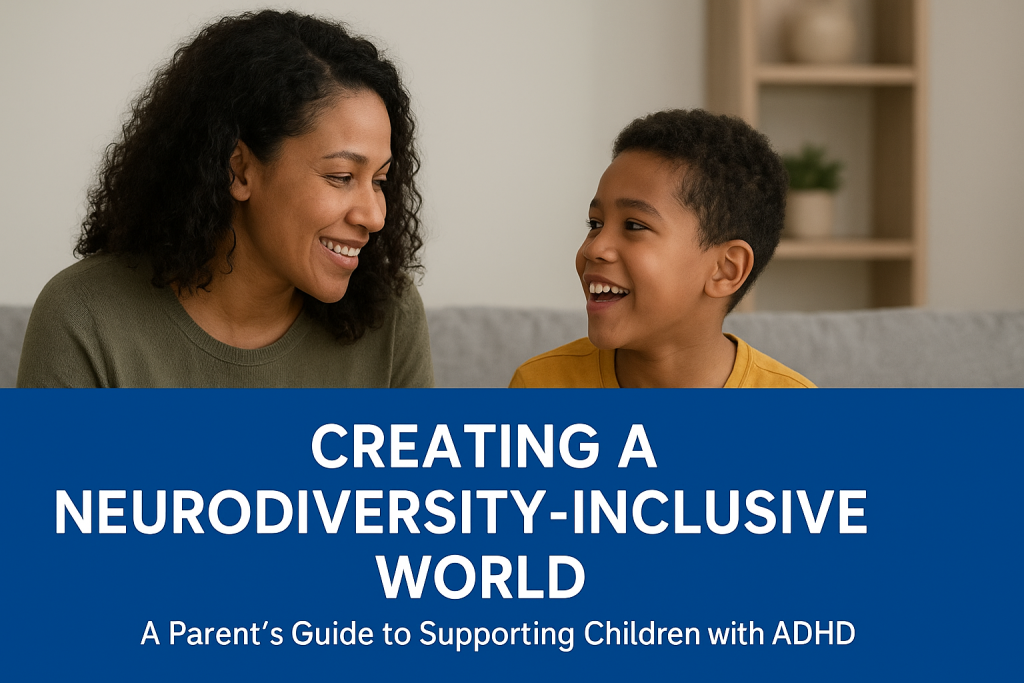
Parenting With Neurodiversity in Mind: 5 Ways to Foster a Neurodiverse-Inclusive World
At Kemis Neurodiverse Kings, we believe that every child deserves to feel seen, valued, and celebrated for who they are. For parenting with neurodiversity, the journey often comes with unique challenges, but also incredible opportunities to nurture resilience, creativity, and confidence. A neurodiversity-inclusive world doesn’t happen overnight. It starts at
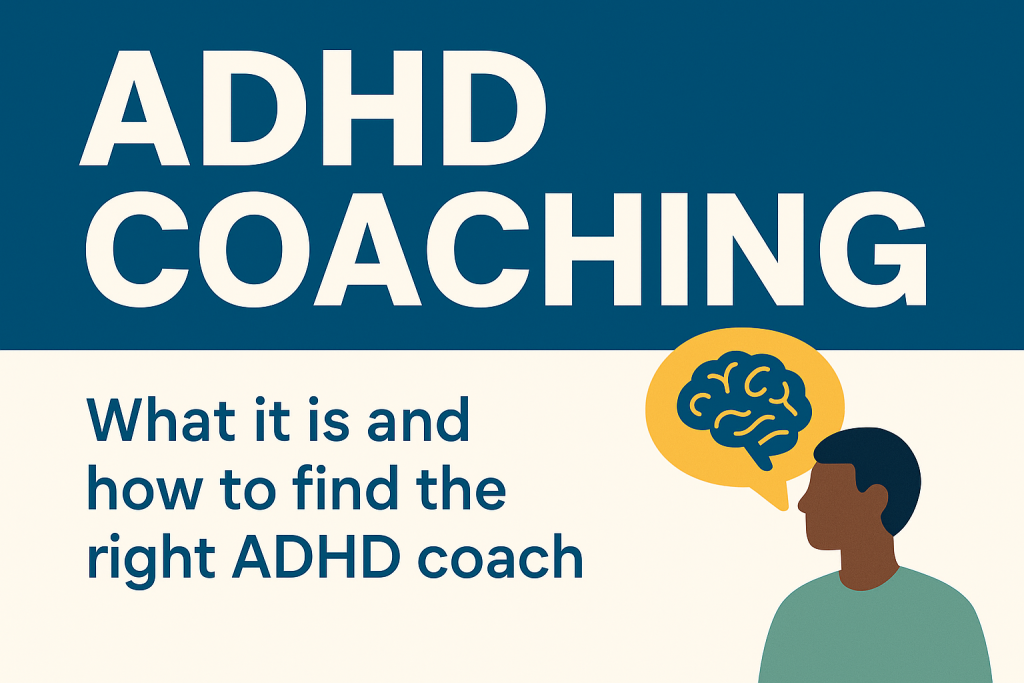
ADHD Coaching: What It Is and How to Find the Right ADHD Coach
When ADHD is holding you back from achieving the life you want, the last thing you need is another “Just try harder” or “It’s not that difficult.” You need a safe space to ask questions, explore challenges, and build practical solutions, not judgement. That’s where an ADHD coach comes in.

ADHD In Women – Subtle Symptoms And Signs You Should Know
It’s easy for ADHD in women to be missed because you often present with daydreaming, forgetfulness or emotional sensitivity rather than overt hyperactivity; if you feel chronically overwhelmed, mislabelled with anxiety or depression, or see symptoms worsen with hormonal shifts, this misdiagnosis can be harmful. The Silent Spectrum: Recognising Subtle
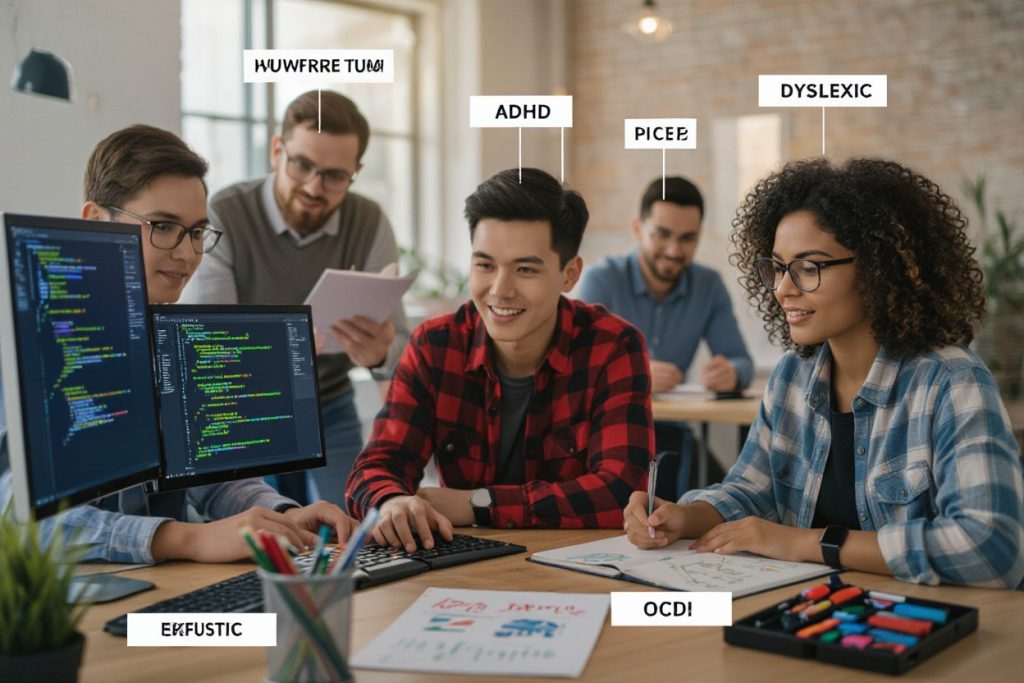
A Guide To The Types Of Neurodiversity And Their Strengths
Many people assume a single way of thinking, but your neurodiversity brings strengths such as creative problem-solving, deep focus and empathy; masking can be dangerous by hiding talent and adding stress. Neurodiversity describes natural variation in brain wiring; different types (ADHD, autism, dyslexia, dyspraxia, dyscalculia, Tourette Syndrome, HSP) bring distinct

Practical ADHD Help For Adults – Strategies That Actually Make A Difference
It’s adult life—work, relationships and bills—that often magnifies ADHD, leaving you at risk of missed deadlines, mounting bills and strained relationships. You need a tailored approach that blends time-management, focus strategies and lifestyle changes; practical supports like Kemi’s resources, one-on-one ADHD coaching and family/parent support make a real difference, and
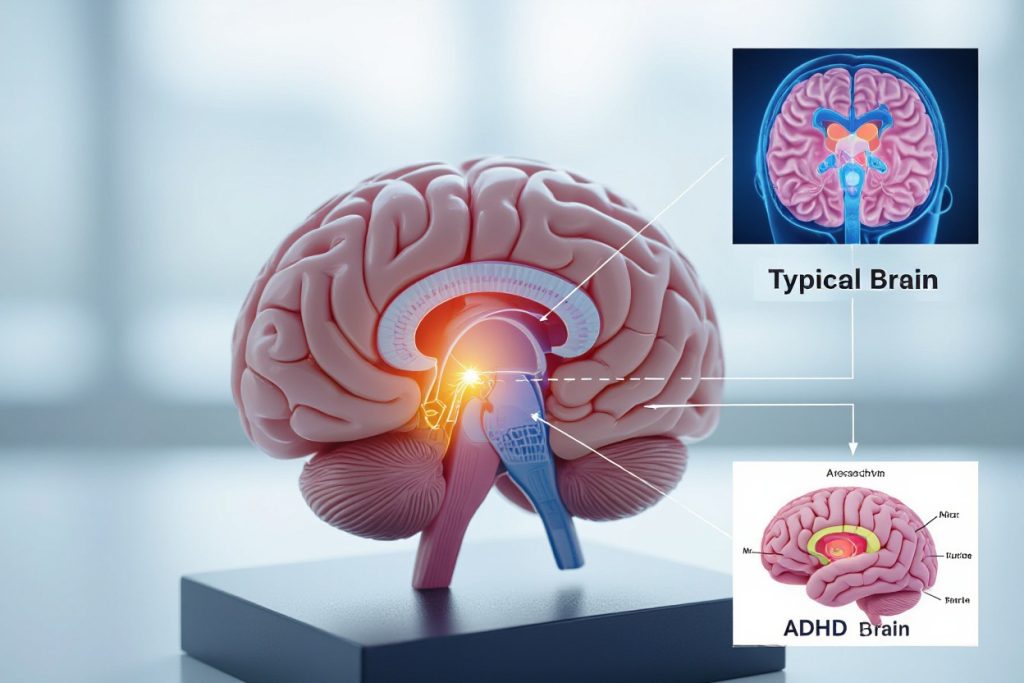
The ADHD Brain Explained – Why It Works Differently
It’s your brain’s wiring and chemistry — especially dopamine regulation and differences in the prefrontal cortex and basal ganglia — that make planning, time perception and emotional control feel different, producing intense emotional responses and rejection sensitivity yet also creativity, high energy and rapid problem‑solving; if you want practical strategies
Welcome
Book Your Free Call and Start Your Journey Today

need any help ? get in touch with us
Whether you have questions, need guidance, or just want to chat , we’re here to help.
Call us anytme
07585 202402
Email us
charlotte@kemisneuro
diversekingsdm.com
Our location
Online Nationwide











